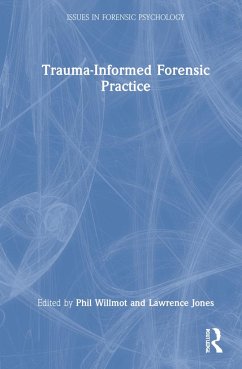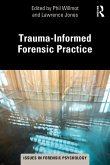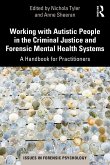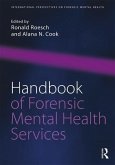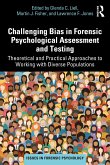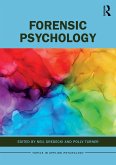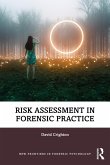Trauma-Informed Forensic Practice argues for placing trauma-informed practice and thinking at the heart of forensic services. It is written by forensic practitioners and service users from prison and forensic mental health, youth justice, and social care settings.
It provides a compassionate theoretical framework for understanding the links between trauma and offending. It also gives practical guidance on working with issues that are particularly associated with a history of trauma in forensic settings, such as self-harm and substance use, as well as on working with groups who are particularly vulnerable to trauma, such as those with intellectual disabilities and military veterans. Finally, it considers organisational aspects of delivering trauma-informed care, not just for service users but for the staff who work in challenging and dangerous forensic environments.
The book is the first of its kind to address such a broad range of issues and settings. It is aimed at forensic practitioners who wish to develop their own trauma-informed practice or trauma-responsive services. It also provides an accessible introduction to trauma-informed forensic practice for undergraduate and postgraduate students.
It provides a compassionate theoretical framework for understanding the links between trauma and offending. It also gives practical guidance on working with issues that are particularly associated with a history of trauma in forensic settings, such as self-harm and substance use, as well as on working with groups who are particularly vulnerable to trauma, such as those with intellectual disabilities and military veterans. Finally, it considers organisational aspects of delivering trauma-informed care, not just for service users but for the staff who work in challenging and dangerous forensic environments.
The book is the first of its kind to address such a broad range of issues and settings. It is aimed at forensic practitioners who wish to develop their own trauma-informed practice or trauma-responsive services. It also provides an accessible introduction to trauma-informed forensic practice for undergraduate and postgraduate students.
"This is an essential introduction to trauma-informed care in an area where it is most needed - the forensic and criminal justice system. Perpetrators often begin as victims, and unless we take on the implications of this, we will never break the cycle of offending. In this extremely comprehensive overview, Willmot and Jones, and a range of experienced contributor, show how this perspective can be applied in a very wide range of settings and client groups. They believe that 'forensic psychology is currently due a paradigm shift.' This book is a crucial contribution to that process."
Dr Lucy Johnstone, co-author of the Power Threat Meaning Framework
"A compassionate understanding of trauma-related pathways into crime has tended to be associated with fears of collusion with offending behaviour, or excuses around culpability. However, this wide-ranging and immensely thoughtful book makes a compelling case for placing trauma-informed approaches at the heart of rehabilitation. This is a great read for both practitioners and service leaders."
Dr Jackie Craissati MBE, Consultant Clinical & forensic Psychologist
"For anyone working in, or interested in, forensic and Criminal Justice services this textbook is both authoritative and groundbreaking in its approach to trauma informed forensic practice. Distinctively, trauma is not simply conceptualized as the product of individual development, but rather the traumas of wider structural inequalities are acknowledged too. It is especially gratifying to see a group of practitioners making such a substantial academic contribution to the field. As academics we have much to learn from this collection of perspectives. I am confident that it will be the go-to text in this field for academics, policy makers and practitioners across and beyond the forensic field. Congratulations to all involved in the production of this weighty volume and especially the editors for orchestrating such a commendable collection of expert and insightful chapters. Very well worth a read, I wholeheartedly endorse it."
Graham Towl, Professor of Forensic Psychology, Durham University and visiting Clinical Professor, Newcastle University and formerly inaugural Chair of the Division of Forensic Psychology and Chief Psychologist, Ministry of Justice, England and Wales.
Dr Lucy Johnstone, co-author of the Power Threat Meaning Framework
"A compassionate understanding of trauma-related pathways into crime has tended to be associated with fears of collusion with offending behaviour, or excuses around culpability. However, this wide-ranging and immensely thoughtful book makes a compelling case for placing trauma-informed approaches at the heart of rehabilitation. This is a great read for both practitioners and service leaders."
Dr Jackie Craissati MBE, Consultant Clinical & forensic Psychologist
"For anyone working in, or interested in, forensic and Criminal Justice services this textbook is both authoritative and groundbreaking in its approach to trauma informed forensic practice. Distinctively, trauma is not simply conceptualized as the product of individual development, but rather the traumas of wider structural inequalities are acknowledged too. It is especially gratifying to see a group of practitioners making such a substantial academic contribution to the field. As academics we have much to learn from this collection of perspectives. I am confident that it will be the go-to text in this field for academics, policy makers and practitioners across and beyond the forensic field. Congratulations to all involved in the production of this weighty volume and especially the editors for orchestrating such a commendable collection of expert and insightful chapters. Very well worth a read, I wholeheartedly endorse it."
Graham Towl, Professor of Forensic Psychology, Durham University and visiting Clinical Professor, Newcastle University and formerly inaugural Chair of the Division of Forensic Psychology and Chief Psychologist, Ministry of Justice, England and Wales.

